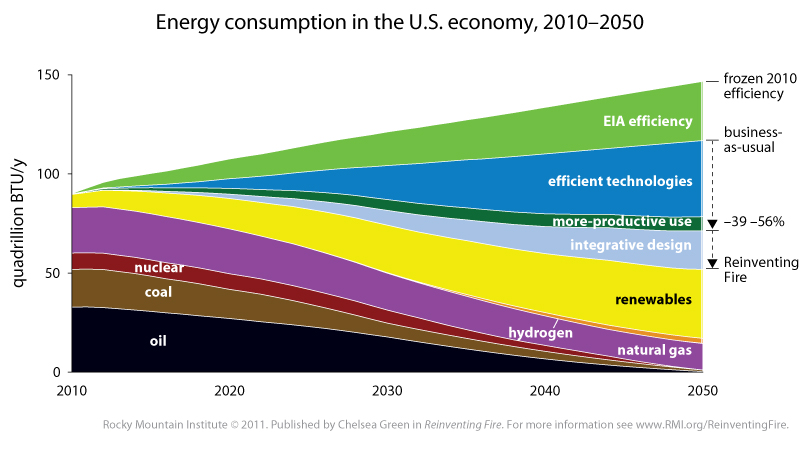Two weeks ago I wrote a post concerning IPCC’s fifth climate assessment and expressed some concern that we, as a global society, would ever get on track in terms of reducing our carbon footprint and avoiding significant, and potentially devastating climate change some time in the future.

Last week, I had the pleasure to visit my friend Hutch Hutchinson at the Rocky Mountain Institute (RMI) in Boulder, Colorado, and after speaking with him and RMI’s new CEO, Jules Kortenhorst, I feel a bit more hopeful about the future.
Lorenzo Massa, an IESE PhD who lectures at the École polytechnique fédérale de Lausanne (EPFL), and I wrote two cases studies about RMI and one of them, Making Ideas Real, looked at the question of whether RMI should expand outside of the United States. One of the reasons to drop in was to learn more about its new Program extending Re-inventing Fire to China.
Re-Inventing Fire
RMI and its founder and Chief Scientist, Amory Lovins, have been pioneers in developing sustainable ideas since 1982. Re-Inventing Fire is the result of a large research program which has developed a detailed road map to move the United States to a low carbon economy by 2050 and is based on looking at applying existing technology to transportation, buildings, industry and electricity generation. One of the essential ideas is that we can become much, much more efficient in using energy without compromising our quality of life.
Back in 2012, the compelling logic was that it was important to first get the U.S. on a sustainable development path and then perhaps the rest of the world will follow.
China
Since then the RMI has decided to open up to the world and Re-Inventing Fire China is a major step.
RMI is working in China with a uniquely qualified consortia which includes a team from Lawrence Livermore Laboratory, the Energy Foundation which has 50 people on the ground in Beijing and China’s Energy Institute, which apparently has excellent links with the Chinese Leadership. The idea is replicate the Re-inventing Fire methodology but using Chinese data. Logically, the blueprint for China will be different than that of the US since China’s starting point is different.
The people at RMI are optimistic that the recommendations of the project , which focus specifically on electric transportation (see last week’s post), building efficiency and power generation will be included in China’s next 5 year plan and believe that China can leapfrog the U.S.
Time for solutions
In addition to the new initiative in China, RMI’s appointment of Jules Kortenhorst, from Holland as CEO, is a tremendous step. Amongst other things, Jules was the founding CEO of the European Climate Foundation (ECF) and his appointment has brought a fundamental change to the RMI’s approach and focus.
In our meeting, Jules was adamant that RMI needs to reach critical mass so that its solutions can be brought faster to scale and thus accelerate implementation of solutions to the looming climate problem which he called the most important challenge facing humanity!


